Need expert implant repair near me? We offer professional dental care, get quick, reliable solutions for damaged or loose implants, including cracked crowns, loose screws, and routine maintenance. Our local specialists provide top-quality service to restore your smile. Book your appointment today for personalized care tailored to your needs!
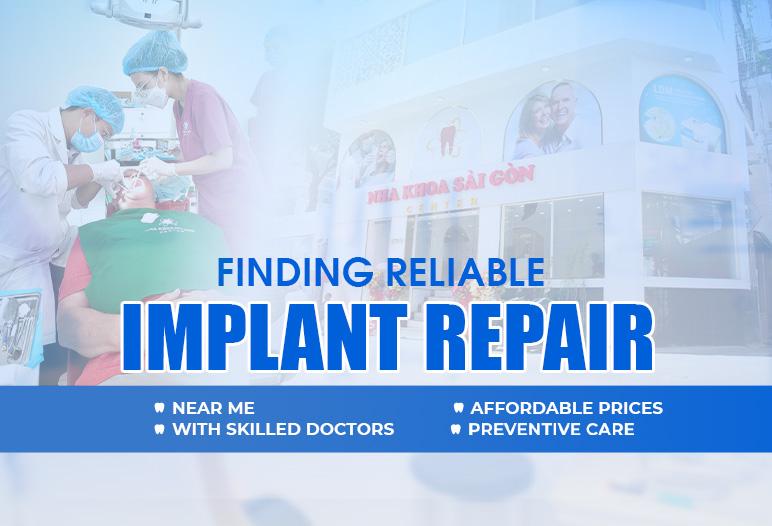
Locating implant repair specialists
The first step in addressing any issues with your dental implants is to locate qualified specialists who can provide the necessary repair services. With so many options available, it’s crucial to focus on finding practitioners with the right expertise and reputation in your community.
Researching local dental clinics
Begin your search by exploring dental clinics and practices situated in your vicinity. Many general dental practices now include implant maintenance and repair services. However, some clinics specifically specialize in implant dentistry, offering services tailored for complex cases and advanced techniques.
When researching local dental clinics, consider using online platforms to check their websites, online listings, and local directories. Gather a list of potential providers and note their specializations. Look for phrases such as “implant dentistry,” “oral surgery,” or “restorative dentistry” on their websites to identify those focusing primarily on dental implants. You might also want to explore social media pages and forums where patients share their experiences regarding local dentists.
It’s beneficial to create a shortlist of clinics that catch your eye. Narrowing down your options allows you to delve deeper into each clinic’s background, services offered, and overall reputation in the community.
Utilizing online directories and reviews
In this digital age, online directories and review platforms serve as invaluable resources for locating reliable dental implant repair near me services. Websites like Zocdoc, Healthgrades, and Yelp centralize information about local dental professionals, including their qualifications, experience, and patient reviews.


Use these platforms to filter your search specifically for implant dentistry or periodontology. Pay keen attention to the feedback provided by previous patients. Reviews often shed light on the quality of care delivered by a specialist, their communication style, and how effectively they addressed patient concerns. Note whether patients reported satisfaction with their treatment outcomes, experienced complications, or encountered professionalism issues during their visits.
Gauging the sentiments expressed in reviews can help you create a more informed decision about which specialists might meet your unique needs and preferences.
Seeking recommendations from general dentists
Another effective method for finding a reliable implant repair specialist is to consult your trusted general dentist. Your general dentist is likely knowledgeable about local specialists and may have worked with specific implant providers in the past.
Reach out to them for personalized recommendations based on your unique implant issue. They can provide insights regarding the specialist’s competency, reputation, and success rates. Furthermore, receiving a referral from a trusted source can streamline your search process, reinforcing confidence that you’re choosing someone reputable.
Your general dentist will know your dental history and specific requirements, allowing them to guide you towards specialists that align with your overall health profile and future goals.
Assessing the qualifications of implant repair providers
Once you’ve identified potential implant repair specialists, it’s crucial to assess their qualifications and experience. The right credentials and background can significantly impact the success rate of your repair procedure.
Importance of certification and training
One of the most critical aspects to consider when evaluating implant repair providers is their certification and training. Look for specialists certified by reputable organizations in implant dentistry, such as the American Academy of Implant Dentistry (AAID) or the International Congress of Oral Implantologists (ICOI).
Certification indicates that a practitioner has met specific educational and experiential standards in dental implants. Knowledge of bone grafting techniques, soft tissue management, and restorative procedures can make all the difference in a successful outcome. A certified specialist is generally up-to-date with the latest advancements and best practices in the field.
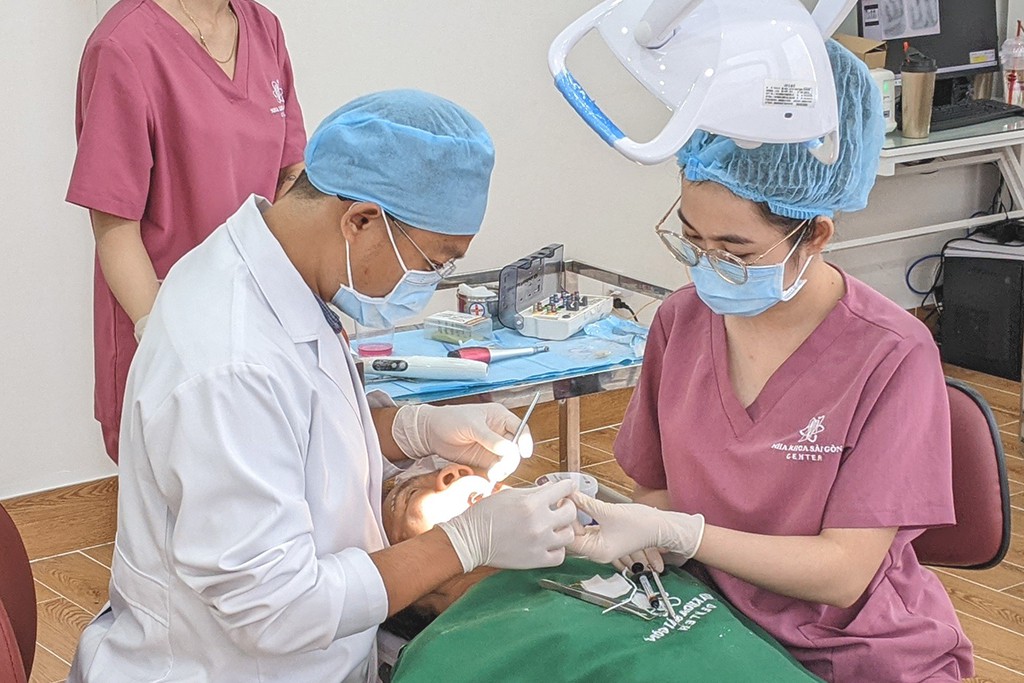
Additionally, you might want to inquire about any continuing education courses the provider participates in. The field of dentistry is always evolving, and ongoing education ensures that the specialist stays current with new technologies and methodologies available for implant repairs.
Evaluating experience in implant dentistry
While certifications signal expertise, evaluating the actual experience of an implant specialist is equally crucial. Inquire about how many implant surgeries they have performed and how long they have been practicing in the field of implant dentistry. An experienced implant specialist is likely to have dealt with a diverse range of cases, allowing them to develop high-level problem-solving skills.
Experience plays a vital role when complications arise or unexpected challenges need addressing during the repair process. An adept specialist will be able to diagnose issues efficiently and recommend appropriate solutions.
You may want to ask the specialist if they have encountered cases similar to yours and what approaches they took to resolve them. Their answers can provide you with insight into their capabilities and instill greater confidence in your choice.
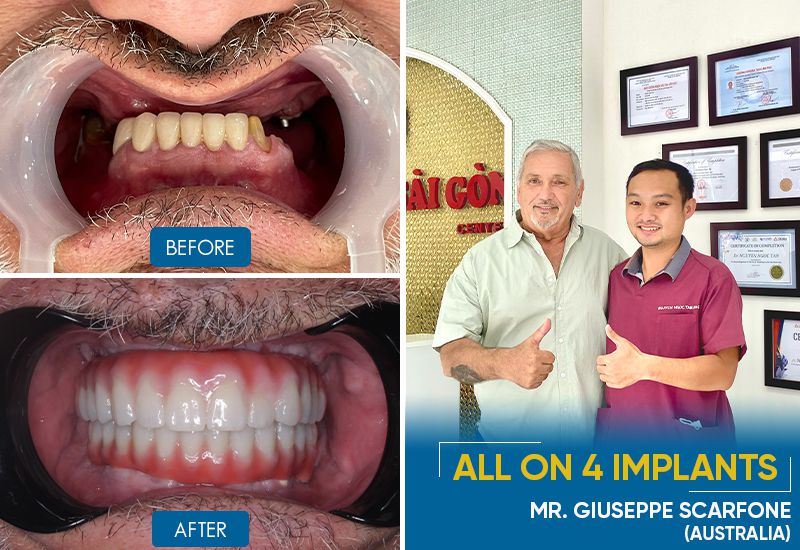
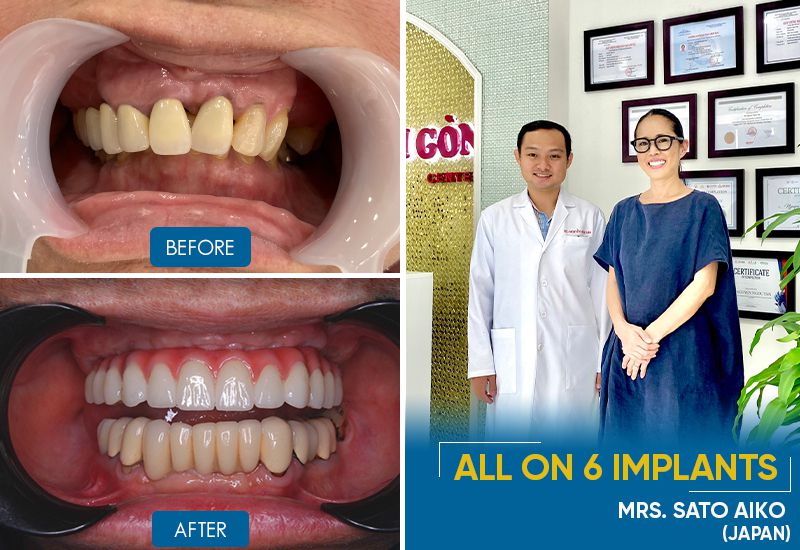
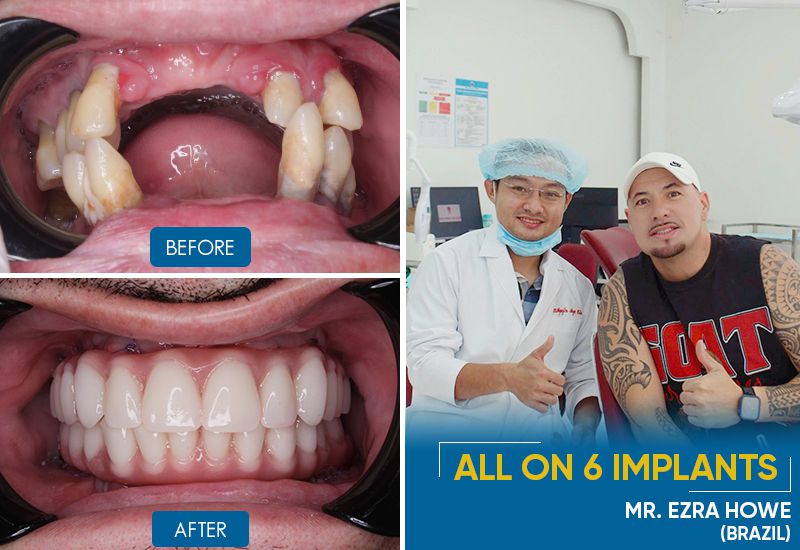
Considering patient testimonials and success rates
Patient testimonials can serve as a wealth of information when assessing potential implant repair specialists. Take the time to read reviews from individuals who have undergone similar procedures under the care of the provider in question.
Questions to consider while reviewing feedback include:
- Were the procedures explained clearly?
- Did the specialist address patients’ concerns effectively?
- What was the overall level of satisfaction with the treatment outcome?
- Were there any complications reported during or after the procedure?
Understanding patient experiences offers a realistic perspective on the quality of care the specialist provides. You may also want to research the specialist’s track record concerning success rates for implant repair procedures. Higher success rates often indicate a well-practiced provider known for excellent patient outcomes.
The consultation process for implant repair
After narrowing down your list of potential implant repair specialists, the next vital step is to schedule a consultation. This initial visit provides you with an opportunity to discuss your concerns, learn about treatment options, and gauge your comfort level with the specialist.
What to expect during your initial visit
During your initial consultation, you can expect a comprehensive evaluation of your oral health. The implant specialist will review your medical history and existing dental records to understand your case better.
A thorough examination of your mouth will follow, including assessing the condition of your implant and surrounding tissues. The specialist may take X-rays or CT scans to evaluate the underlying bone structure. This diagnostic approach helps identify any potential issues contributing to your implant problems.
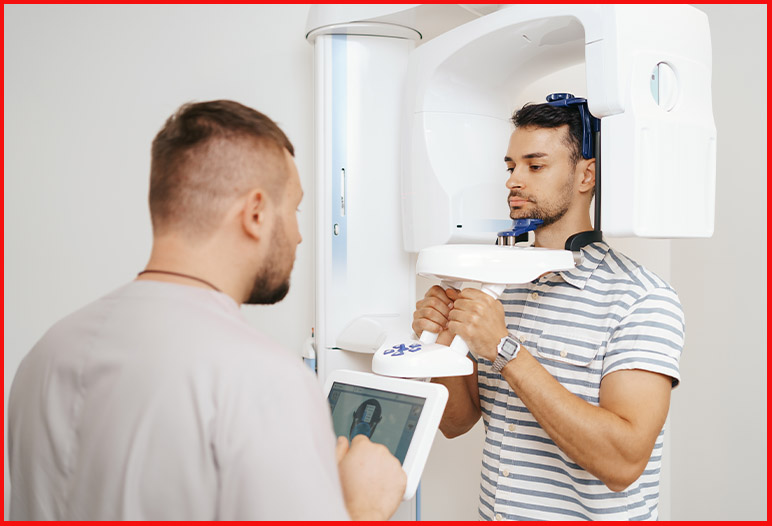
After the examination, the specialist will explain the nature of your implant issue and outline potential treatment options. They should take the time to answer your questions and ensure you feel comfortable discussing your concerns about the repair process.
Questions to ask your implant repair specialist
Asking the right questions during your consultation is crucial for understanding your treatment plan thoroughly. It’s essential to gather as much information as possible before proceeding with the repair.
Consider asking questions such as:
- What specific causes contributed to my implant problem?
- What treatment options do you recommend for my situation?
- What are the potential risks and complications associated with each option?
- What is the success rate of the proposed treatment?
- How long will the repair process take, and what can I expect during recovery?
- What post-operative care instructions should I follow?
- Are there any potential long-term costs associated with the repair?
These inquiries not only demonstrate your interest but also empower you with knowledge, ensuring you make informed decisions regarding your care.
Understanding treatment options available
The treatment options available for implant repair vary depending on the nature of the issue and the condition of the implant. Some common repair methods may include:
- Crown repair or replacement: If the crown attached to your implant has become loose, fractured, or chipped, it may need repair or complete replacement to restore function and aesthetics.
- Abutment repair or replacement: The abutment serves as the connector between the implant and the crown. Should it become damaged or fractured, replacement may be necessary.
- Implant restoration: In cases where the implant itself has deteriorated due to infection or bone loss, a more extensive procedure may be required to restore the implant’s stability and functionality.
- Soft tissue management: If the gum tissue around the implant shows signs of inflammation or recession, specialists might recommend procedures to enhance or regenerate the surrounding soft tissue.
By discussing these options with your specialist, you can find the most suitable treatment plan tailored to your individual needs.
Cost considerations for implant repair
Understanding the financial aspect of implant repair is crucial for making informed decisions. The cost of procedures can vary widely based on several factors, and taking the time to consider them can save you stress and uncertainty in the long run.
Factors influencing the cost of repair services
Several elements contribute to the overall cost of implant repair services. These include:
- Complexity of the repair: More complicated procedures, such as those requiring implant replacement or bone grafting, typically incur higher costs compared to simpler repairs, such as crown replacements.
- Materials used: The type and quality of materials employed during the repair can also influence pricing. High-quality materials may come at a premium but tend to offer better longevity and aesthetic results.
- Location of the dental practice: The geographical location of the dental practice can significantly impact costs due to variations in overhead expenses, labor costs, and market dynamics.
- Experience of the specialist: Established implant specialists usually charge higher fees reflecting their expertise and history of successful outcomes.
Exploring insurance coverage and payment plans
Before moving forward with any repair procedure, it’s wise to contact your dental insurance provider to check coverage provisions. Many insurance plans offer some level of reimbursement for implant repair procedures; however, the specifics vary by plan.
Understanding your coverage limits upfront can prevent surprises later in the process. Most dental practices also provide flexible payment options, including installment plans or financing opportunities, allowing you to manage the costs more comfortably. Be sure to discuss these options with your chosen specialist to determine the best financial approach for your treatment.
Comparing costs across different providers
After collecting quotes from multiple providers, take the time to compare the costs involved in your implant repair procedure. While price is an important factor, don’t base your choice solely on it. Quality of care, the experience of the provider, and patient satisfaction should weigh heavily in your decision-making process.
It’s important to strike a balance between affordability and quality. The cheapest option may not always provide the best care, while investing in a more experienced specialist could lead to better long-term outcomes and fewer complications.
Conclusion
Navigating the world of dental implants can be daunting, especially when it comes to finding reliable implant repair near me. By following the steps outlined in this guide, you can confidently identify qualified specialists, evaluate their credentials, and understand the treatment options available for your specific situation. Remember to prioritize communication and comfort during the consultation process, and don’t hesitate to ask questions to ensure you make informed decisions regarding your dental health.
Whether you’re dealing with a loose crown, a damaged abutment, or other complications, locating the right implant repair specialist is an essential step toward restoring both the functionality and aesthetics of your smile. By taking the time to research and assess potential providers, you’ll be well-equipped to make a decision that supports your long-term oral health and well-being.

 Google Reviews
Google Reviews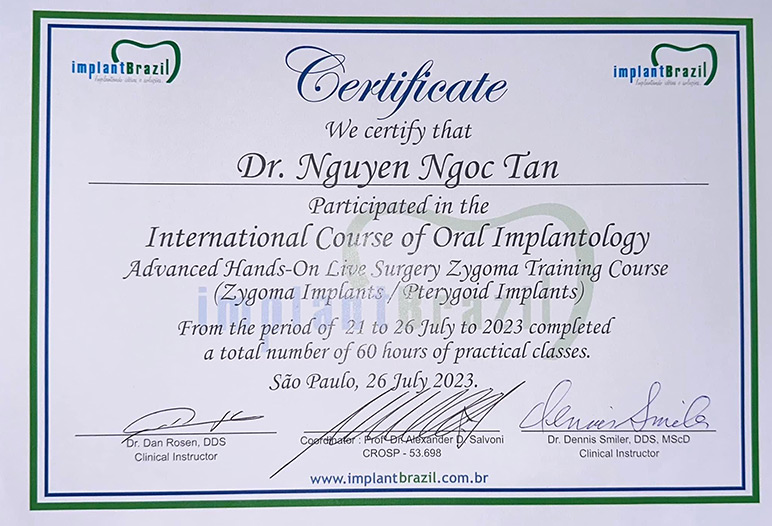


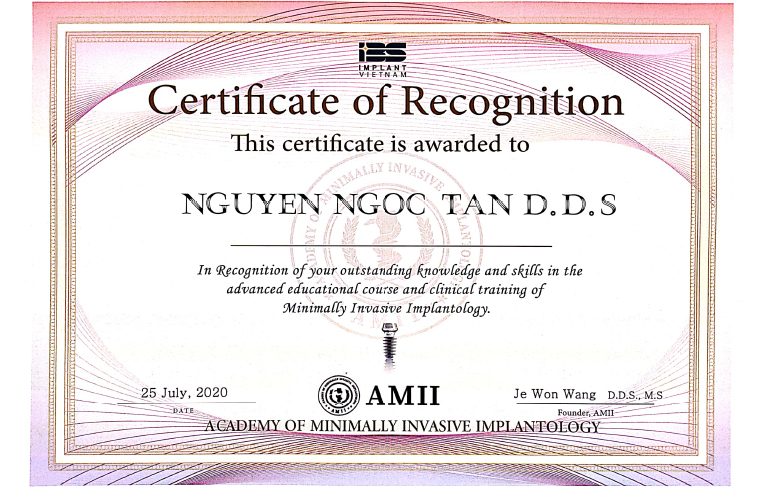


 Call
Call
SAIGON IMPLANT CENTER
Best dentist in Vietnam
Saigon Implant Center - Dental Clinic utilizes the latest technology for specialized treatment in the field of Single implant, full jaw implants, All on 4 implants, All on 6 implants, Zygoma implant....
SAIGON IMPLANT CENTER
Best dentist in Vietnam
Saigon Implant Center - Dental Clinic utilizes the latest technology for specialized treatment in the field of Single implant, full jaw implants, All on 4 implants, All on 6 implants, Zygoma implant....